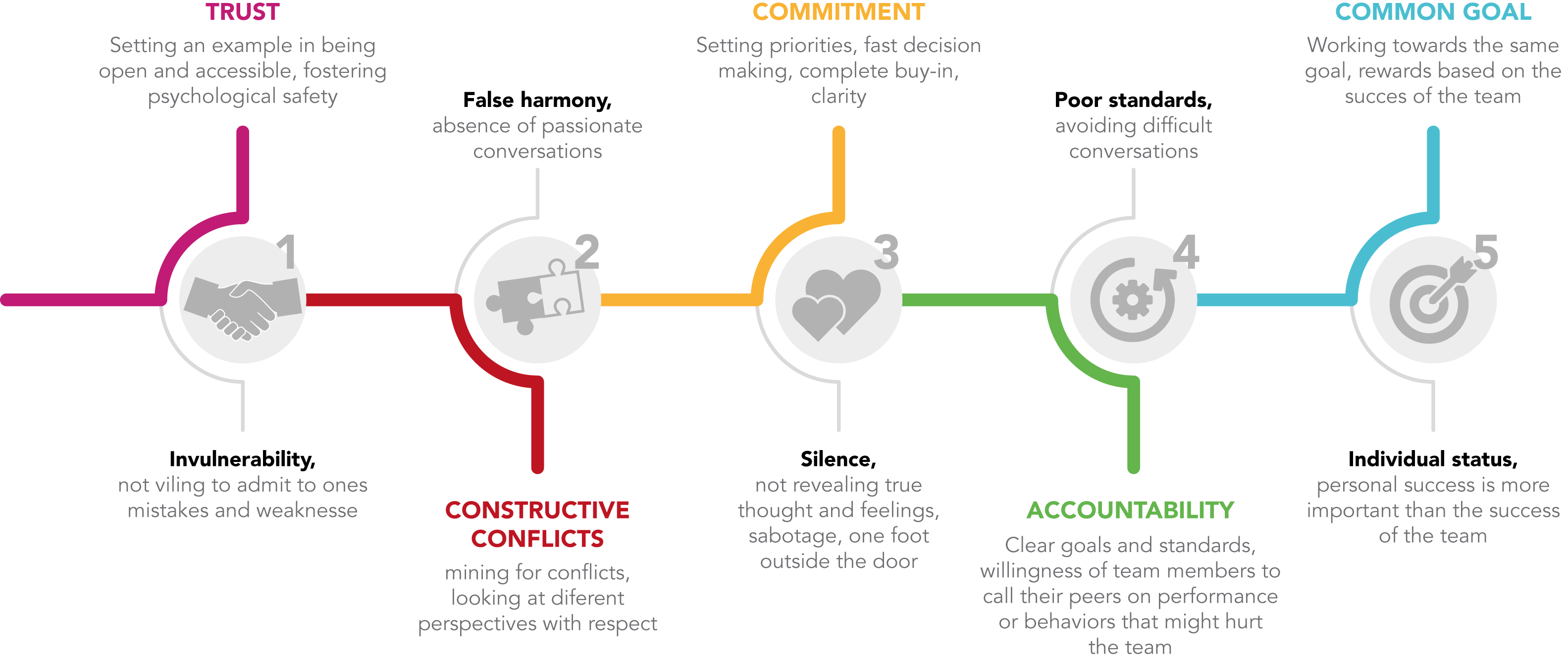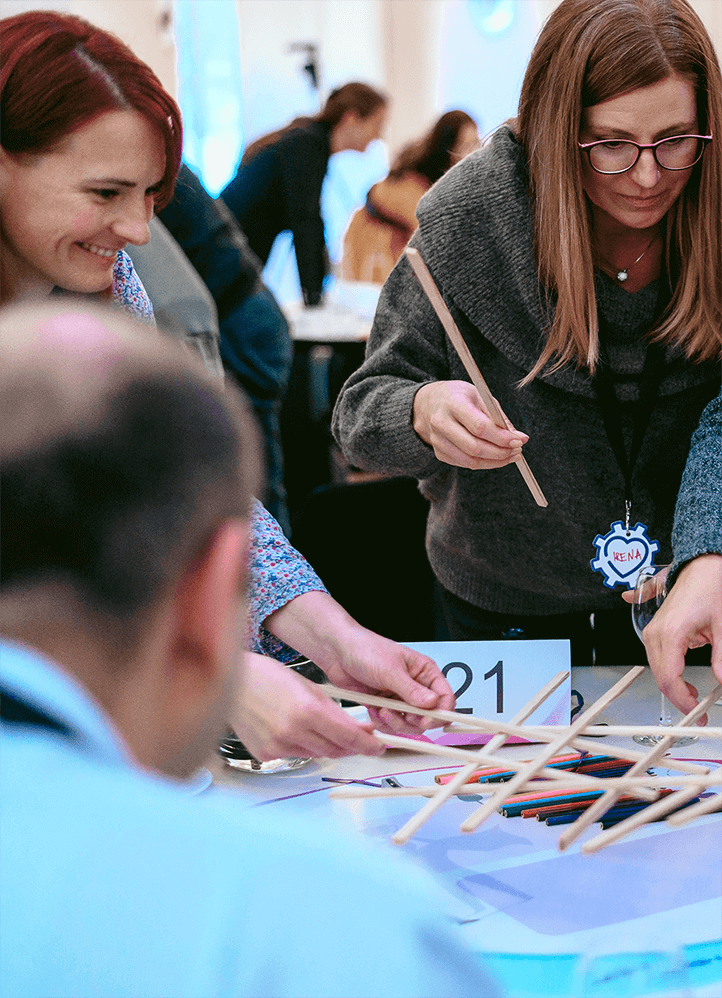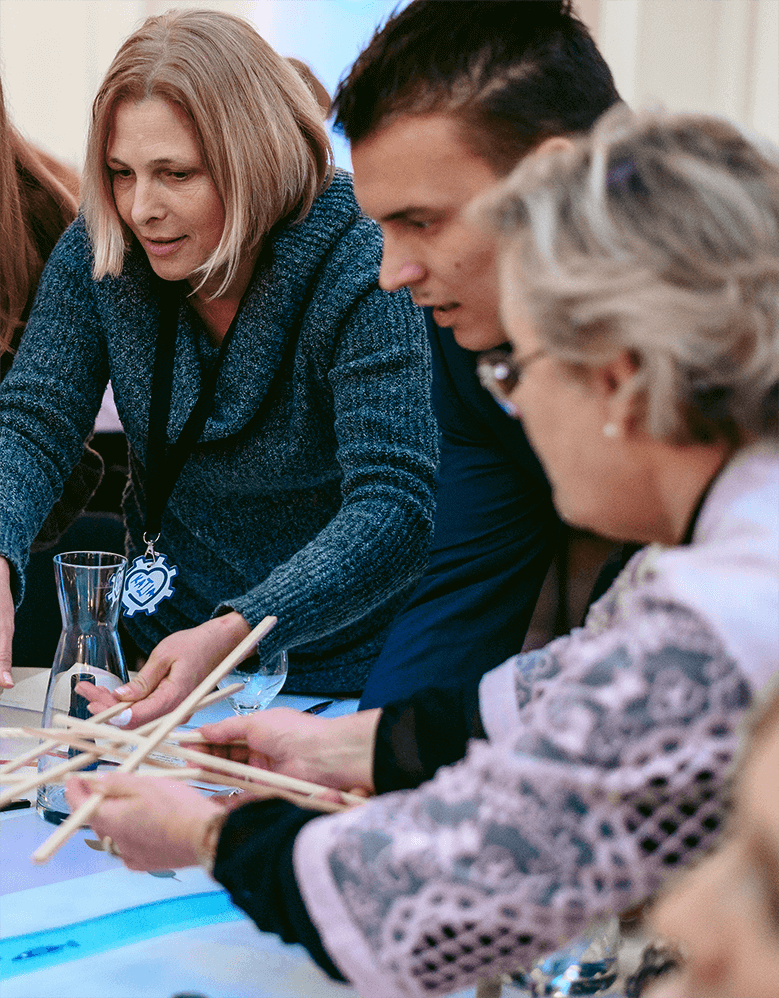
5 Easy Steps To Build Trust In The Business World
2 min
Trust is the glue of teamwork.
Employee trust is the basis without which true teamwork does not exist. When team trust is high constructive conflicts can occur. The unrestrained confrontation of different ideas and views is only possible if you trust that the coworker only wants the best for the team. Open dialogue means everybody will understand the decisions and goals of the team. This triggers a commitment to common goals.
Trust, constructive conflict and dedication also lead to accountability and honest feedback when individual members fail to reach agreed standards of work or behavior. All this leads to the highest level of teamwork when team result is more important than personal success. When the team is passionate about topics that are relevant to their business success, they stand behind the decisions and are not afraid of honest feedback and confronting difficult topics, as shared success comes first. This ideal of teamwork produces the best results for the team and the individual, and consequently for the company. However, it starts with the trust among colleagues.

How to develop team trust?
Establishing trust between co-workers requires the establishment of good personal relationships. It is often mistaken to think that trust comes from trust in an individual's competencies and knowledge. It sounds logical, but trust is extremely emotional. Simon Sinek gives a fine example of irrational trust: “Who would you trust to protect your children when you take your partner to a romantic dinner? A 15 year old from your street or a recognized educator with a great CV from another country? The educator would be the logical choice. But most of us would choose a girl from our street, as we know her. We have more experience with her and a more developed personal relationship.” Trust comes from the depth of knowing a person, character traits, values. It stems from mutual knowledge and acceptance. In the workplace, confidence develops the same as in private life. How?
1. Allow yourselves to be vulnerable
Vulnerability is key to building trust. We must also be willing to let our associates discover our mistakes and allow them a glimpse into our intimate world. One of the activities we can do with the team is a brief personal presentation where each member presents their childhood and answers 5 questions: 1) Where did I grow up? 2) How many children were there in the family? 3) What was my favorite thing to do? 4) What was my biggest challenge? 5) How did I first make money?
2. Share common values
When we share our values with our colleagues, we can trust them faster and easier, even if we do not know them well enough. The well-defined values of the company, which also serve as a guide for recruitment and personalized processes, can greatly contribute here. Many modern companies (eg Zappos, Google) place great emphasis on values in the search for personnel. After a trial period, values are often one of the key elements in deciding whether to renew a contract.
3. Have a common purpose
Some good business practices foster trust among colleagues. One such is a clear common purpose. For some teams this is easy - the fire department in action has a clear purpose that connects team members very quickly. In the business segment, however, we have to actively communicate and look for employees whose purpose is consistent with the purpose of the company. "I want to put a ding in the universe." Steve Jobs said in the '80s, pulling on like-minded employees and clients. When we know that our coworker has the same purpose as we do, we find it easier to open up and trust that we want the same thing.
4. Give constant constructive feedback
Constructive feedback for personal development is also important for building trust among colleagues. But it is important that it is genuine and delivered in a safe environment.
5. Take time to chat
Talking about personal things over coffee or at lunch can greatly help to know your coworkers and build a good interpersonal relationship. Do you know how many kids your coworkers have, what motivates them, what they care most about, and how they charge their batteries? Invite them for coffee!
dr. Luka Jan






